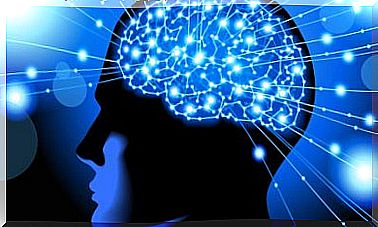Generosity And Its Benefits In Psychology

In recent years, new studies have shed light on elements that would confirm that generosity has many benefits in psychology. Certain humanist and existentialist authors indeed put forward ethical values and love. Erich Fromm and Victor Frankl notably studied the benefits of generosity on our psychological state.
Thus, Fromm asserts that ethical values and love are a source of psychological well-being. They are an essential part of an emotionally healthy person (Oberst, 2005).
The benefits of generosity in psychology
Generosity and gratitude are two important concepts that reflect excellence in personal character (Emmons & Sheldon, 2002). They are also somewhat complementary. Indeed, the relationship between these two concepts begins with an affective process of “giving” without expecting anything in return. It can be a material good, a piece of advice or even help given to another person. Generosity is prosocial behavior that aims to promote the well-being of others.
Maslow (2001) speaks of the “generous nature” and “healthy generosity” of the human being. And this, as opposed to selfishness. He asserts that there is a relationship between generous behavior and psychological health. Indeed, generous behavior comes from “abundance” and “inner wealth”. On the other hand, selfish behavior is a phenomenon of inner poverty. It often characterizes neurotic people.

The concept of gratitude from a psychological point of view
From an ethical perspective, gratitude is defined as a moral virtue that denotes good behavior (McCullogh, Kilpatrick, Emmons & Larson, 2001). However, the definition, as moral behavior, obliges the recipient to thank the donor (Blumenfeld, 1962).
Recognizing and appreciating the person who has helped us does not mean that we are indebted to them. Although many claim that gratitude and royalty are the same. In fact, they are essentially different (Watkins, Scheer, Ovnicek & Kolts, 2006). This is because debt requires the debtor to make a payment back to the creditor.
It is important to stress that the donor’s action must necessarily be generous. It is not about giving in the hope of a reward in return. The act of generosity is not intended to attract creditors for any selfish satisfaction.
Generosity as an indicator of mental health in psychology?
Generosity has mostly been studied in the context of scientific research into the origins of altruism. In addition, several empirical studies now consider it a good indicator of mental health. The feeling of belonging to a community also resides in psychological well-being. This is why its absence is an indicator of poor psychological balance and mental disorders.
When the child fails to develop a certain sense of community, feelings of not belonging, inadequacy, inferiority or even an inferiority complex may appear (Oberst, 2005). This may be due, for example, to an education that is too authoritarian or too consensual.
This feeling of inferiority is hard to bear. Therefore, the classic reflex is to compensate for it or even to over-compensate it with what Adler calls “ardor for superiority or ardor for power”. It is an aspect which, according to Adlerian psychology, would be at the base of any psychological disorder.

Lack of generosity and its consequences
According to Adler, the individual who experiences a feeling of inferiority due to a lack of sense of community would develop a “neurotic disposition” (Adler, 1912/1993). The neurotic disposition can have several manifestations. Neuroticism defines them today as a personality trait. These same manifestations are also found in psychosomatic disorders and in personality disorders.
This supposed inferiority creates a distortion of emotional life. The neurotic is no longer able to relate to others in a natural and spontaneous way. On the contrary, to compensate for this feeling of inferiority, he constantly seeks presumptuous success.
When this disposition worsens or psychosocial problems are added to it, character deformations may appear. It can be greed, resentment, malice, cruelty, etc. All for the sole purpose of escaping the unbearable feeling of feeling inferior or despised.









